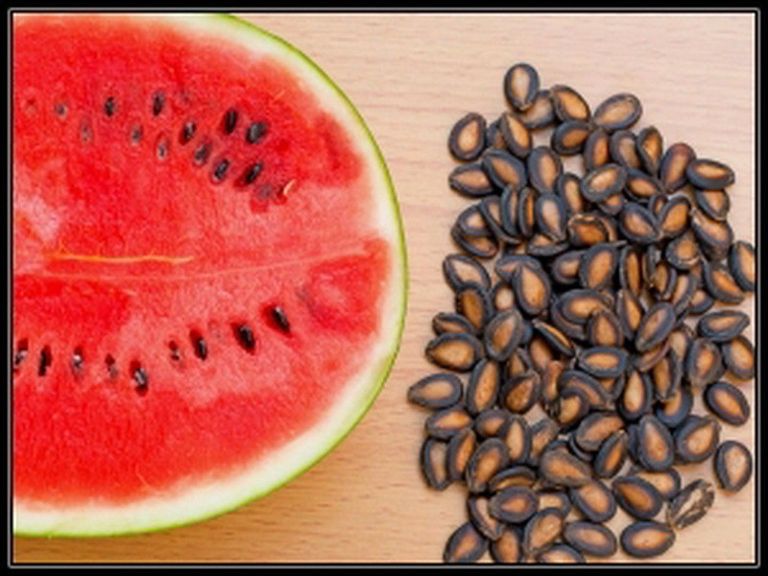
Were you aware of the possible health advantages of watermelon seeds? Indeed, one of the most nutrient-dense types of seeds is watermelon. Watermelon seeds are tasty, nutritious, and make a fantastic snack, but spitting them out, removing them, or discarding them lowers the fruit's nutritional value. Drying and roasting them simply takes a few minutes, and you'll have a delicious and nutritious snack to help your body get even more nutrients.
Watermelon seeds have some of the highest nutritional content. Zinc, magnesium, copper, potassium, omega 6 fatty acid and omega-3 fatty acids fatty acids, minerals, and protein compounds are all abundant in them. One serving of roasted watermelon seeds has roughly 600 calories, so make sure to consume them sparingly because they are heavy in calories.
ADVANTAGES FOR HEALTH OF WATERMELON SEEDS.
Potassium, magnesium (more than 140 percent of our daily needs per cup), folate, zinc, copper, iron, copper, and other minerals are all abundant in watermelon seeds. Due to their high protein, amino acid, and a complex of vitamin B content, these seeds are extremely nutrient-dense. These nutrients work together to increase the metabolism of your body and enhance the health and mineral density of your bones.
Seeds from watermelons can help skin health.
It moisturizes your skin and delays the onset of early aging signs in addition to avoiding acne outbreaks. Regular use of these seeds maintains their suppleness.
Watermelon seeds have the potential to thicken hair. Copper, iron, magnesium, and protein are all crucial for healthy hair. Protein promotes hair growth, while magnesium guards against breakage and split ends. Copper keeps your hair lustrous and silky by increasing the production of melanin.
Seeds from watermelons help strengthen the heart. You can benefit your heart from watermelon seeds in several ways. They include monounsaturated fatty acids as well as poly which have been shown in studies to have heart-protective properties. These seeds are rich in magnesium, an essential mineral for sustaining healthy blood pressure.
Watermelon seeds' anti-inflammatory and antioxidant qualities likely account for their benefits in heart
health maintenance. Their iron concentration is also essential for the body's transportation of oxygen-rich blood. Additionally, watermelon seeds are an excellent source of zinc, which is important for heart health since it controls the flow of calcium in the heart.
Better blood sugar regulation and decreased insulin resistance are linked to watermelon seeds. The main goal for diabetics is to control their blood sugar levels, and seeds are a great method to do so. Maintain a stable blood sugar level by including these priceless seeds in your diet.
The magnesium included in watermelon seeds aids in controlling how carbs are metabolized, which has an immediate impact on blood sugar levels. To strengthen the immune system, eat watermelon seeds. The vitamins and iron in watermelon seeds support a stronger immune system. The vitamin B complex included in these seeds is also beneficial in this respect.
Seeds from watermelons can help prevent osteoporosis. The poor bone density and fragile bones associated with osteoporosis raise the risk of broken bones. Regular use of dried watermelon seeds can help shield your bones from early degeneration. These seeds are an amazing source of magnesium, offering more than 140% of what you need every day. Additionally, they are abundant in potassium, manganese, and copper.
These nutrients all help to increase mineral density and support healthy bones. The neurological system can be supported by watermelon seeds. Vitamin B complex, which is vital for a healthy brain and nerve system, is found in watermelon seeds.
Seeds From Watermelons Might increase Vitality.
The seeds of watermelon do contain a lot of calories. Can you guess, though, where most of those calories originate? The source of it is good fatty acids. You may eat watermelon seeds as a snack anytime you're feeling peckish. A single serving of watermelon seeds increases your metabolism and provides your body with vital nutrients. But, keep in mind that they still contain a lot of calories, and eating too many of them could lead to weight gain.
Watermelon seeds' ability to increase metabolism Iron, copper, the minerals magnesium, potassium zinc, folate, amino acids, and the complex of vitamins B are all abundant in watermelon seeds. Both controlling and increasing the body's metabolism is made possible by these nutrients.
THE MANNER IN WHICH WATERMELON SEEDS ARE EATEN .
It's better to eat watermelon seeds toasted. The seeds of watermelon may be roasted easily. Preheat the oven to 325°F (160°C). Line a baking sheet with the seeds. Their roasting time should not exceed 15 minutes, although you might need to toss them halfway done to ensure even roasting. You can add salt and olive oil to help make the seeds more flavorful, or you can dust them with a little sugar and cinnamon. Incorporate cayenne pepper, lime juice, or even chilli powder for added taste.